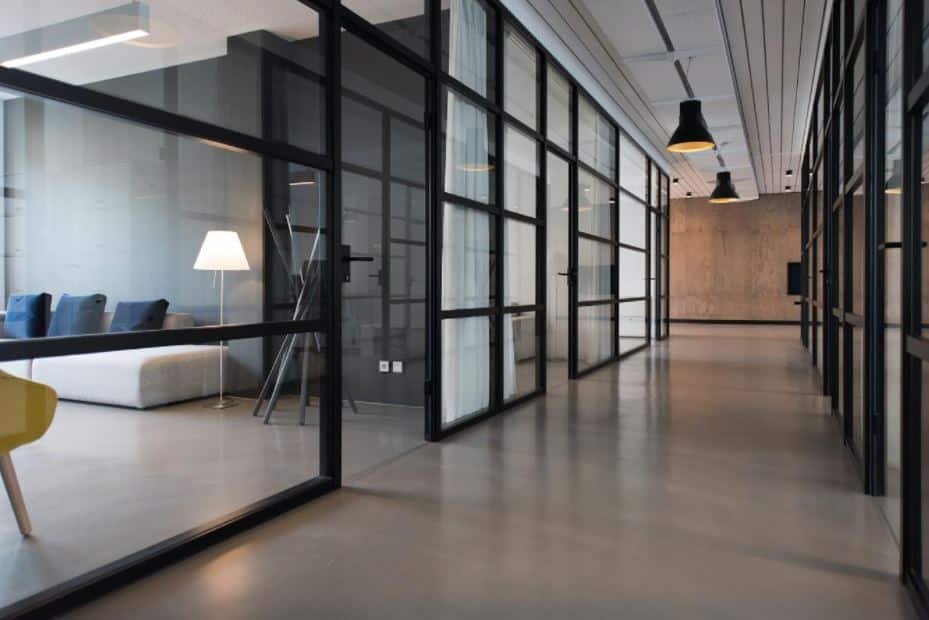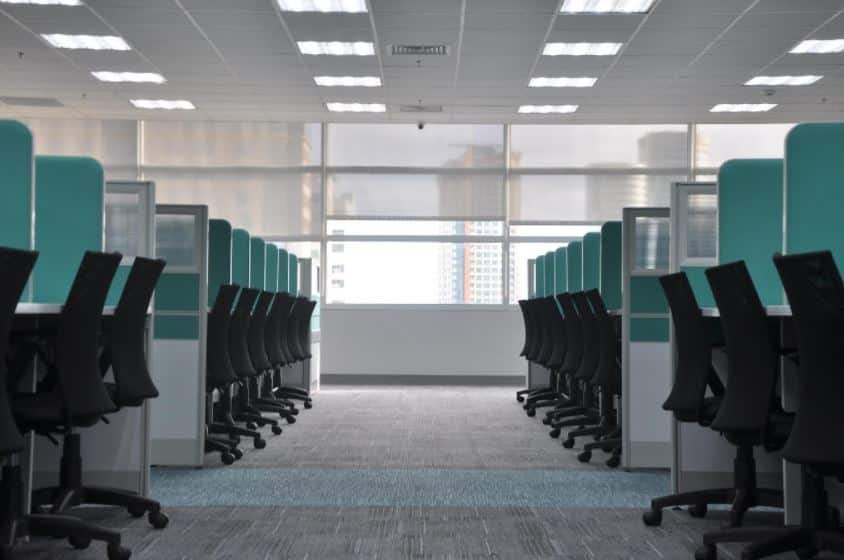Lifestyle
Office Partitioning Tips in Achieving a Well-Designed Space for Your Employees

Cubicles are back and they are back with a good reason. Sure, open space gives you more room, facilitates communication, and gives your team a better sense of unity but this is definitely not all that your team needs.
In the age of the COVID-19 pandemic, dividers can save lives and make it easier to keep the situation under control in your workplace. Other than this, dividers reduce noise and give your staff a greater sense of privacy, both of which directly affect productivity.
The main reason why the cubicle system was abandoned by so many organizations in the past is the idea that it, for some reason, reminds people of a prison (cell-based) setting. These accusations, of course, were completely baseless, which makes more and more enterprises flock back to embrace this unjustly abandoned, efficient, technique.
Nonetheless, in order to reap all of these benefits, you need to figure out the best way to partition your office space. Here are several tips to help you get the grip of this.
[lwptoc]
-
Amount of personal space
There are several standard cubicle sizes out there, the most common ones being 6’x6’, 6’x8, or 8’x8’. The fact that this is a standard issue means that it makes your job easier for a couple of reasons. First of all, the vendor that you’re ordering cubicles from probably already has the dividers in the inventory and can send them right away. Also, asking for anything that is outside of the standard means that you will probably have to pay extra.

The biggest issue regarding the personal space in the office is a matter of privacy. On the one hand, even in an open office, you would have to provide enough space for every single one of your employees. With the cubicle system, a lot of problems are resolved right away. You get a barrier that minimizes the noise, as well as protection from germs and virus particles (something that is especially important in 2021).
Keep in mind that when using dividers to create the cubicle system in your office, you need to plan with a bit more space in mind. While the dividers are thin, they do take some space. This means that they have to be taken into account.
-
Allow personalization
Allowing your employees to personalize their cubicles and decorate them on their own can make a world of difference. First of all, you get to make everyone feel like they have their own office. Sure, a cubicle serves the function of an office and it provides one with the privacy one would get in a proper office but, this is not what a personal office is in the eyes of your employees. An office is a privilege; a testament to one’s value for the firm. Giving them permission to decorate the cubicle can give a similar effect.
If you allow your staff members to do what they please with their cubicle (as far as it doesn’t disturb others are goes into their cubicles), you’re also giving them a sense of ownership of the company. Needless to say, this is a huge factor when it comes to the intrinsic motivation of your staff. Remember that your employees need to feel like they belong and allowing them to control the setting, you will ensure that this is, indeed, the case.
Keep in mind that limiting their space also means limiting their options. Therefore, think about this while deciding on the average size of the cubicle. While it may seem like a minor decision, it’s definitely a huge point to consider.
-
The material
One of the biggest issues you need to consider when partitioning the offices is the choice of material. Here, you have so many different options.
The most common options for office cubicle materials are metal and fabric. Sometimes, seeing as how desks are already made out of laminate, the cubicle wall is made from a similar material as an extension. The problem with fabric cubicles is the fact that it doesn’t obstruct sound that effectively. In some settings this may be sufficient but what if you’re organizing a sales department and everyone is simultaneously on their phone.
More innovative solutions like Perspex sheets can provide you with a far superior combination of durability, sound absorption, and aesthetics. The choice of material will determine the overall design of the office, seeing as how it’s already one of the biggest surfaces in the entire area.
Other than this, glass dividers represent a great compromise between a cubicle and an open floor. First of all, they reduce noise in the room and protect from virus spread. At the same time, they’re less claustrophobic and give one a greater sense of unity with their coworkers. The problem is that they don’t provide much privacy.
-
Maintenance
One thing that no one tells you about cubicles is just how big of a hassle they are to maintain. Previously, we’ve talked about the choice of the material and this is really the point that will affect maintenance the most. For instance, in the previous paragraph, we’ve mentioned glass dividers. While they are a terrific idea, they need to be wiped regularly (probably on a daily basis) in order to maintain their aesthetics and transparency.
Vinyl, metal, wood, and fabric, on the other hand, are all much easier to maintain than glass. So, when making a decision, try to add maintenance to factors like cost, aesthetics, and physical properties.
Sure, you need to have your entire team on board since if they’re about to get some control over their cubicles, they also need to take charge of its maintenance. Of course, this doesn’t have to imply dusting and using chemical cleaners in the area. However, decluttering, taking care of one’s own trash, etc. needs to be mandatory. The way you implement this is completely up to you.
-
Perfect working conditions
We’ve already mentioned several times the fact that a cubicle can provide you with sound insulation. The thing is that there’s more to it. Remember that everyone has their own working dynamics and the fact that a supervisor has a clear line of sight to their screen will not make anyone work harder. In other words, a cubicle can allow everyone to move at their own pace.
Keep in mind that foot traffic isn’t necessarily a problem but in a tightly packed office space, it could cause a lot of disturbance. If there’s not enough space between desks and chairs, chances are that people will move you in order to squeeze in between the desk lines all the time. Even with the tightly packed office spaces in the cubicle system, this won’t really be an issue. You’re protected by a barrier and that’s that.
Remember that some people are distracted by visual stimuli, as well. Within your office space, you get to see only the items that you choose to display. In fact, you can even use your cubicle walls to display your interests and hobbies. If you’re just getting into photography, you could try to take some photos that will fit this setting perfectly. Hanging a motivational poster or two can be a good idea, as well.
-
Plan for the future
One of the easiest mistakes to make when planning an office layout and partitioning it are plans for the future. You see, it’s easy to just take the number of employees you currently have, divide the area by the number, and draw the cubicle for all of them on your office floor. However, is the current number a final number? What happens when you need to bring more people in? What happens with these cubicles if you need to lay off some people? Well, there are a couple of versatile solutions that could help you out with these scenarios.
The first idea is to invest in demountable cubicles. This would allow you to transform the area as you see fit and at your own behest. The second concept is to go for desks with privacy panels pre-installed. This way, you get a compromise in which each workstation becomes cubicle-like.
Remote work is the eventuality of the 21st century. For that very reason, it’s important to take it into consideration when partitioning your office. Are your staff members there all week long or do they have 1-2 days per week to work from home? Is there a permanent part of your staff that works from home, as well? Answering these questions will help you make your partitioned office space future-proof.
In conclusion
At the end of the day, this particular situation is a perfect example of how something seemingly simple can end up being a major business decision. A choice between an open office floor and the cubicle system can determine the entire work dynamic of your staff. Even once you make a choice, the way in which you’ll execute this idea and set up the design can make all the difference in the world. Fortunately, by following the above-listed several principles, you can understand what’s at stake and try to get the most out of the situation.
-

 Entertainment1 month ago
Entertainment1 month ago123Movies Alternatives: 13 Best Streaming Sites in 2026
-

 Entertainment2 months ago
Entertainment2 months ago13 Free FMovies Alternatives to Watch Movies Online in 2026
-

 Entertainment1 month ago
Entertainment1 month ago13 Flixtor Alternatives to Stream Free Movies [2026]
-

 Entertainment1 month ago
Entertainment1 month agoGoMovies is Down? Here are the 11 Best Alternatives






